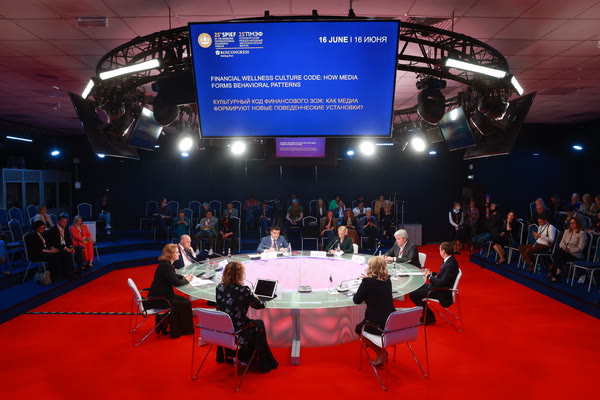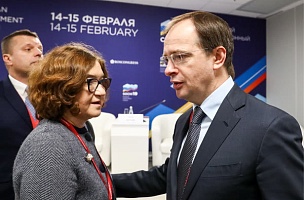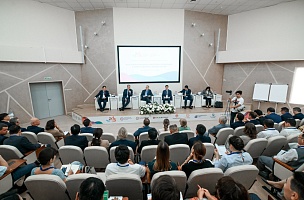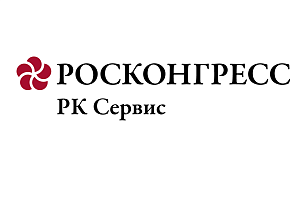Financial education in Russia needs to develop into financial culture
“Let’s stop talking about financial literacy and instead talk about financial culture, because this is a much more serious, complex, and important phenomenon. We have already done the crash course, and are not in the first year of school any more, but in the eighth,” Alexander Auzan, Dean of the Faculty of Economics, Lomonosov Moscow State University.
“Over the course of 10 years, while the project was in its pilot stage (and it really did cover financial literacy, with separate fundamental areas and basics covered), we worked a great deal on methodology. Our five leading economic universities have developed a genuinely universal basis for the education system. Taken as a whole, it covers all aspects, areas, and levels of education, from preschool – strange as that may sound – to educational programmes for the older generation. And I can say that today we have precisely set forth our objectives to foster a financial culture on the basis of these developments. These objectives are strategically important for the entire financial system,” Mikhail Kotyukov, Deputy Minister of Finance of the Russian Federation.
Financial literacy projects should be diversified to reflect the population of Russia
“What do we know about Russian culture? First of all, there is a duality at the core. The key characteristic is the contrast of individualism and collectivism. <...> We have both engines, but just think how differently people will react to something like risk. <...> I would like there to be an avoidance both of Russian roulette and the reluctance to invest anywhere other than state-owned bank deposits, which are now also struggling to understand what to do in this situation,” Alexander Auzan, Dean of the Faculty of Economics, Lomonosov Moscow State University.
PROBLEMS
Education does not necessarily change a person’s behaviour
“In 1993 we began to look at financial services, fraud, and other areas as a confederation of consumers. Where has this evolution led us? It seems to me that together we have, in a global sense, built a huge and powerful financial education system. Does that mean that we have solved the problem? No. That’s because at a particular point it was discovered – and not only by us – that education was of course important, necessary, and beneficial, but that it does not necessarily change how a person behaves. A person may know that a particular thing shouldn’t be done, and that they should act a certain way instead. Regardless of that, however, they act according to their usual behaviour, because there are certain values attached to it. Values and behaviour also form culture in an economic sense,” Alexander Auzan, Dean of the Faculty of Economics, Lomonosov Moscow State University.
Money continues to be an off-limits topic of conversation in Russia
“You know how hard it can be for talented people – especially in the regions – to find their inner entrepreneur, and indeed, to become one. That’s particularly the case for things to do with our unique cultural heritage or folk crafts <...> At times, when we talk about culture, it all seems improper. After all, we are temples, and budgets should not come into it. We should only focus on meaning. The only difference with these temples is that there are pipes, there are, forgive me, sewerage systems, and there’s lighting equipment,” Olga Lyubimova, Minister of Culture of the Russian Federation.
SOLUTIONS
Using the creative industries to change financial values
“The creative industries will one day be a strong point for the Russian economy if we manage to transform our creative potential into tangible industries. By this I am referring to property turnover, copyright and related rights, trademarks, and branding. Note that while we do not have an over-accumulation of capital in a monetary sense, we do have an over-accumulation of human capital. So, we need to promote the sector by proceeding from this point. And I think that by combining the creative industries with expert knowledge and media exposure, we have a chance to take very precise steps forward in terms of values and behaviours,” Alexander Auzan, Dean of the Faculty of Economics, Lomonosov Moscow State University.
“From the projects we have seen and the applications we have received, there is an entire stratum of society whose cultural code has already been changed. These are the people who grew up with iPads and phones in their hands. Most members of this generation are still in their adolescence, but still, they react differently. For them, buying an in-built game with the tap of a button is the standard, and they consider anything else to be strange. The very idea that a free product can contain a paid-for element has been ingrained right from the beginning. And there’s a default feeling that this could be the case everywhere,” Alexey Goreslavsky, Director General, Internet Development Institute.
Developing financial literacy projects which factor in the needs of young people
“I believe that the time has come to stop thinking about this initiative purely as an educational endeavour, and to do everything to bring it to the widest possible audience. We should capitalize on all the opportunities available in order to achieve this. I am grateful in this regard for the proposal to combine expert knowledge with the potential offered by the creative industry. That’s because young people today look at many things very differently. They trust representative of various industries, and we should bring these industries on board for our project,” Mikhail Kotyukov, Deputy Minister of Finance of the Russian Federation.
Capitalizing on the experience of developing financial literacy in the regions
“We have also worked on creating a sociocultural map of the country. We have conducted research in cooperation with the Russian Venture Company for five years. I’d say that 15–17 regions have been covered. Our findings were that, first of all, we are one nation <...> but there are significant variations. We can capitalize on these to explore the incredible development opportunities that exist. We know how Yakutia’s creative industry operates: we have videogames, film-making, and so on. Basically, it’s possible to identify features of each region which can and should serve as areas of focus,” Alexander Auzan, Dean of the Faculty of Economics, Lomonosov Moscow State University.
“We saw a major event take place last year. Across every single region we launched a financial literacy programme, which remains in place to this day. For 10 years, this was an experimental pilot programme, and now it is a truly nationwide initiative. And of course, the regions have played a decisive role in this endeavour. Our aim is to ensure that every single person has access to various materials. <...> And the rich experience accumulated in the regions will of course be invariably more useful than our ideas about the programme’s potential. People live across the land. They’ll be faster at identifying effective approaches. Today, we are collecting best practices from across the regions,” Mikhail Kotyukov, Deputy Minister of Finance of the Russian Federation.
For more information, visit the Roscongress Foundation’s Information and Analytical System at roscongress.org/en






